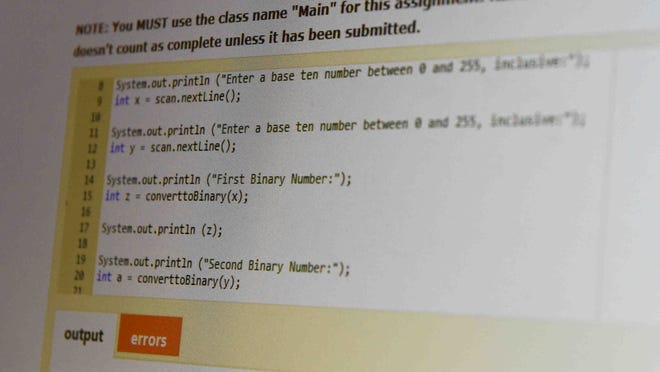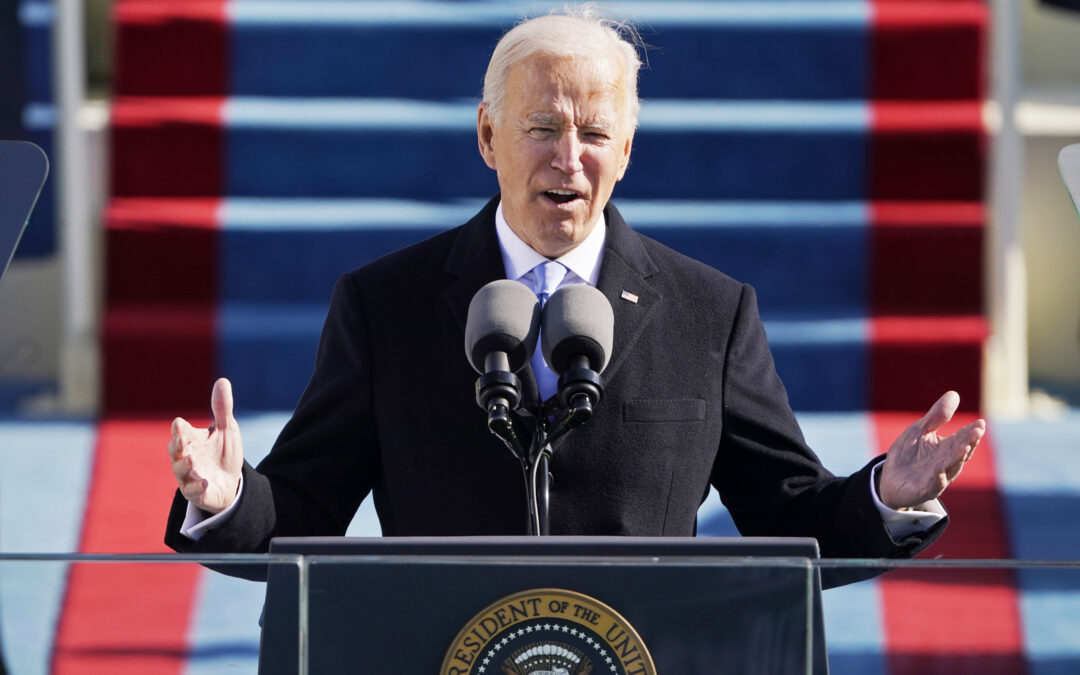
by blogadmin | Sep 26, 2021 | Blog Post, Delaware, Media Publishing's, Year 2021
Upon landing in the “land of opportunity” 22 years ago, I lost no time in starting a software company in Delaware called Tekstrom, Inc. Since then, Tekstrom has employed hundreds of engineers specializing in software testing methodologies and solutions that serve clients nationally and across our borders.
Americans with a degree in computer science and engineering or otherwise possessing relevant coding skills have been sought after for years because software applications have penetrated the world around us and had a deep impact on our lives. The ever-growing demand for skilled developers here and abroad has resulted in a scarcity of qualified personnel.

AP Computer Science could be a huge boost for students seeking technical skills that many future employers would be interested in.
This need-availability gulf is in no way exclusively an American reality. However, it has hurt us more due to our pioneering and leadership role in the computer software universe. Moreover, it has become clear to me that opportunities in these specialized computing fields are scarcer still in the African-American and Hispanic populations.
Why then have we failed to seal the gap? What are the barriers to their entry?
There are thousands of jobs paying top dollar that remain vacant in the software industry. Take a look at the US labor statistics: By the end of 2020, there were 1.4 million unfilled computer software jobs. Meanwhile, in the U.S. we graduate only 400,000 software specialists each year. Many positions are filled by foreign engineers, particularly by those who, like myself, come from India.
In addition, the pandemic paradoxically has upped the need for software and software workers while the enrollment of computer science undergraduate and graduate degrees students has fallen.
A family’s economic situation may not be responsible for everything in a child’s life, but it certainly has an impact. Many children of economically challenged minority individuals simply don’t have the guidance, network, financial stability and training to enter the software industry.
I decided to take the initiative and create a program that would help minority students enter the computing marketplace. I named it PROGRESS — Producing Real Opportunities by Giving Relevant Education in Software and Systems. Its structure and curriculum were born as a result of the input from many educators, colleagues and friends.
I also felt It was time for us Indian Americans, I told some in my social circle — especially those in the software industry — to give back to America, which has provided us the opportunity to work hard, grow and enrich our lives in many ways. We could make America better and stronger by helping African-American and other underprivileged, underrepresented populations to enter the software industry.
I reached out to colleagues and friends with this message, and they immediately and wholeheartedly agreed to help and contribute to PROGRESS. For instance, Rishi Potdar of Pennsylvania, Rajnikant Swain of Delaware, Dharamvir Dahiya of New Jersey, and Venu Madhav of India have passionately invested many hours during their tutoring sessions over Zoom — no monetary benefit involved.
I am delighted to report that the first 12-week PROGRESS training session ended successfully on Aug. 6. A small cohort of four internees, enrolled from Delaware State University, a historically Black university, after passing a web-based test to assess their learning potential, graduated successfully with the knowledge and hands-on skills presently in demand in the software testing field.
Thanks to Professor Marwan Rasamny, chairperson of DSU’s computer science department, who reviewed and evaluated the scope and intensity of the PROGRESS curriculum, all four graduates scored three academic credits toward their respective degrees. PROGRESS also paid a stipend of a thousand dollars to each student to keep them focused on participating and learning throughout the program.
The significance of much-needed “soft” skills such as resume building, interviewing, and how, when and where to apply for jobs was recognized and factored into PROGRESS as well. Interactions with successful professionals in these areas helped the trainees to understand the industry and career potential.
We also owe a debt of thanks to the corporate sector as well. Over Zoom, the four trainees interacted with and learned from Company Services Corporation Chief Technical Officer Kyle Sturgis, Executive Director of Tech Impact Patrick Callihan, and Syed Fazli, head of Automation Practice for Corelogic in Irvine, California, and former CTO at Bloomberg.
While PROGRESS has started small, we hope to increase the number of participants in each session to a maximum of ten. All internships in the future will remain free of charge,
The initiative would not have taken off without the help of State Sen. Bryan Townsend who introduced me to Rasamny, Kyle Sturgis and Patrick Callihan and encouraged me overall. I am optimistic that once the pandemic is behind us and awareness about the PROGRESS spreads, more academicians, community leaders and software managers will join the initiative.
For more information about PROGRESS or to participate, contact me at charan@tekstrom.com
—————
This column was published online by the https://www.delawareonline.com/ on Sept. 16, 2021.
Print edition was published on Sept. 19, 2021.

by blogadmin | Feb 8, 2021 | Blog Post, Delaware, Media Publishing's, Year 2021
The dangerous trend among a disturbingly large group in this country to replace truth, fact and science with accusation, assumption and unsupported opinion is spreading across multiple sectors of American life.
Unwillingness to accept the verifiable results of a legitimate election was the catalyst for the recent attack on the U.S. Capitol. Refusal to wear masks and adhere to proven precautions against COVID-19 enables the spread of the disease. Unfounded — and in some cases outrageou s— claims about coronavirus vaccines will keep many Americans from being protected.
There is certainly nothing new about substituting belief for fact or lies for truth. The world has been doing it for millennia, and it almost always ends badly. One of the longest running recent examples is the denial of climate change as a fact, a reality that is wreaking realtime havoc here and abroad.
According to the National Oceanic and Atmospheric Administration:
“In 2020, there were 22 weather/climate disaster events with losses exceeding $1 billion each to affect the United States. These events included 1 drought event, 13 severe storm events, 7 tropical cyclone events, and 1 wildfire event. Overall, these events resulted in the deaths of 262 people and had significant economic effects on the areas impacted. The 1980–2020 annual average is 7.0 events (CPI-adjusted); the annual average for the most recent 5 years (2016–2020) is 16.2 events (CPI-adjusted).”
The lines on America’s disaster graph are clearly and consistently rising like sea levels everywhere, including in our Delaware. Globally, European climate researchers recently announced that 2020 was the hottest year on record, tied with 2016.
Former President Donald Trump and others, often supported by self-interested and profit-obsessed billionaires and corporations, have used their pulpits to deny climate change and to label its science as “fake.” One short sample of Trump tweets on climate change: “The concept of global warming was created by and for the Chinese in order to make U.S. manufacturing non-competitive.”
Bill Gates, a billionaire who is using much of his fortune to help solve problems around the world, sees a similarity between the effects of COVID-19 and climate change: “If you want to understand the kind of damage that climate change will inflict, look at COVID-19 and spread the pain out over a much longer period of time. The loss of life and economic misery caused by this pandemic are on par with what will happen regularly if we do not eliminate the world’s carbon emissions.”
Locally, Delaware Interfaith Power and Light (delawareIPL.org), a non-profit, is working diligently through faith communities and partners to address both the causes and consequences of climate change, which they consider to be “the defining moral issue of our times.”
According to Lisa Locke, Director of Programs, “The greatest and most imminent threats, as we’ve already seen, are to low-income, the young and the elderly, and communities of color, who are often most vulnerable to the impacts, least prepared to withstand the effects, and least responsible for their causes.”
Delaware Senate Environmental & Energy Chair Stephanie Hansen told me: “As a low-lying state, the impact of sea level rise driven, at least in part, by climate change is felt dramatically by our residents not only in our coastal areas by the loss of land, structures, and infrastructure such as roadways, but inland as well with the increase in the height of the water table. The increase in the height of the water table leads to flooding, structure damage, and the loss of agricultural land among many other things.”
These are verifiable facts, not opinion.
We know that faith can move mountains. We also know that, unbridled and untested, it can distort people’s thinking in damaging ways and blind their ability to reason.

President-elect Joe Biden and his wife, Jill Biden, board a plane at New Castle Airport, Tuesday, Jan. 19, 2021, near New Castle.
In my own neighborhood — just north of the Delaware and Chesapeake Canal, a family has been using their home twice weekly to hold what they describe as church services. Many men, women and children, ignoring rules against large gatherings, have attended these services, sitting cozily next to each other without any masks. The routine continues even after one of the leaders died of COVID-19.
Rep. Eric Morrison, a newly elected legislator from the area, who has been working to stop it, said, “First, it is a violation of county code. Second, they are flagrantly defying the orders of the governor regarding Covid and public health.”
The behavior of this group is not altogether surprising nor limited to my neighborhood. Just look at the members of Congress who refused to wear masks during their confinement at the Capitol while under siege by insurgents. Shortly thereafter, several people who shared their space contracted COVID-19.
Whether it is dealing with a human pandemic or the physical fate of our planet, it is painfully obvious that a refusal to accept fact and science usually brings tragic results. So, when President Joe Biden says he wants to restore the soul of America, let’s not forget to bring the mind along with it.
—————
This column was published online by the https://www.delawareonline.com/ on Feb. 05, 2021.

by blogadmin | Feb 8, 2021 | Blog Post, Delaware, Media Publishing's, Year 2021
Wasn’t the worst supposed to be behind us when 2020 finally slithered out the door? Apparently not for those us living in America. A revitalised pandemic, a slow and inefficient Covid-19 vaccination process and contested elections greeted the New Year. And then came January 6, 2021 and the assault on Capitol Hill. Will that be the end, the worst that will happen? I don’t know anyone who has the answer because this inglorious act may be an old and outdated mishap between my writing about it and you reading it. Donald Trump has only days left in his presidency, but in America we have learned that days can seem like weeks when he gets busy.
Capitol Hill hosts both the United States (US) House of Representatives and the US Senate. That day, when the elected tenants of both of these temples of democracy were going about their most vital work – affirming the collective will of Americans to choose their president and the vice president – pro-Trump thugs and hooligans, in a brazen act of domestic terrorism, stormed the building in an attempted coup. Both chambers were evacuated and the ongoing voting was suspended.
Encouraged by the president himself and his sycophants, this growling, overwhelmingly Caucasian mob assaulted a suspiciously understaffed Capitol Police force, vandalised offices and rushed through the edifice of our democracy at will. Some carried weapons, pipe bombs and Molotov cocktails. Five people died. The mob smashed windows, broke doors, stole or tore up important documents while looting elected members’ offices and occupying their chairs. They desecrated the hallowed halls of our venerable legislative institutions.
Many observers have pointed to the lack of law enforcement presence when peaceful participants in the June Black Lives Matter march were barricaded, tear-gassed and arrested by the large police force. Many, including incoming President Joe Biden, correctly assert that had the insurrectionists been people of colour, the law enforcement response would have sadly been very different.
Trump’s inept and weak attempt at contrition after the smoke cleared rang hollow and was an obvious attempt to quiet the swelling calls for his resignation, impeachment, or forced removal from office.
The American dream?
While the world watched this chaos in a country that has long been considered a mecca of progress and innovation, one that has been preaching to the world for decades about democracy and the rule of law, I slumped in a chair, shocked.
My numbed mind rippled across the oceans to Punjab in India, where I was born and raised. I recalled the America I knew from the movies, the printed word, and talk of those Indians who had become Americans or whose relatives were in America before March 6, 1999, when I first landed here as an employee of a software company.
America had all that I had ever imagined and wanted in a country: power (I don’t mean 24-hour electricity) and strength on a global level; initiative and resources that made it a world leader in almost every sphere; a pathway to success. It wasn’t called the Land of Opportunity for nothing.
It had a democracy in the real sense that was better than the washed and ironed version of the one practiced in India’s parliament; or on the Indian roads by its traffic police. It had law and order that was visible and not just confined to selectively enforced rule books. It had Apple, IBM, HP, Compaq, Motorola, Microsoft, Oracle, Yahoo, Intel, and the others I had read and heard about during my computer science engineering days.
The relative ease of starting and running a business as an entrepreneur energised my dreams after my arrival here. It seemed the country had an impeccable system for everything that worked smoothly and efficiently. Only a couple of things kept it from being perfect: Punjabi wasn’t its national language; rotis and naans were not part of its national diet; and baseball was too different from our south Asian cricket.
I had never bought or owned anything with wheels in India. A few months after arriving here, I had a Honda Accord, followed by other vehicles. I successfully started multiple software companies here, one after the other. My wife and I bought a home on an acre of land. We went on vacations with our daughter and son to almost every part of the world, and we even visited Pakistan during Guru Nanak’s 550th birthday anniversary celebration.
But when people I know in India, Pakistan, Europe, or elsewhere asked me in 2016 how Donald Trump got elected, I had no answer. What I did know was that I would do my best not to let it happen again. I never worked for a political cause with such energy and passion as I did before the November 2020 election. I made 300-plus calls a day to Sikhs and South Asians across the country, wrote cards, raised and contributed money, and digitally defended Democrats and Joe Biden supporters in cyberspace against Trump followers and Republicans trolls.
Why Trump?
It was apparent to me and many other Americans that Trump was not only unfit to lead the country but that he posed a real danger to our democracy. His legislative assaults, incendiary tweets, constitutional brinkmanship, cruel immigration policies, and abuse of power were the hallmarks of his leadership.
In the Republican Party under Trump, these routine and systematic atrocities numbed tens of millions of Americans, gradually desensitising them with their frequency and intensity. He had somehow managed to transform the party into a cult.
One friend, an artist and writer, reminded me: “Trump’s niece wrote a book about him, having little or nothing kind to say, and her final statement was to the effect that before he left, he would burn the house down. Well, maybe he just got others to do it for him.”
Another friend, a Delaware state senator, Bryan Townsend, offered this assessment: “The sight of an angry mob violently storming the U.S. Capitol and occupying the chambers and offices was surreal, in some ways unthinkable. There is no doubt, President Trump stoked the anger and violence; the question now is, how does a President Biden and our political leaders more broadly best advance the agenda Americans so desperately deserve and need without fueling that fire? Thankfully, a transition of power is just days away. We soon will see real leadership in the White House and, hopefully, a coalescing of the American people.”
A New Year, a new way
Is America past its zenith? We will see. I wish and pray for fellow Delawarean Joe Biden’s success, a great leader and man of integrity, who said, “The words of a president matter. At their best, they can inspire; at their worst they can incite.” We hope that he will be able to arrest America’s descent. So, is 2020 really over? For me, the New Year will begin at noon on January 20th.
—————
This column was published online by the https://tribune.com.pk/ on January 09, 2021.







Recent Comments